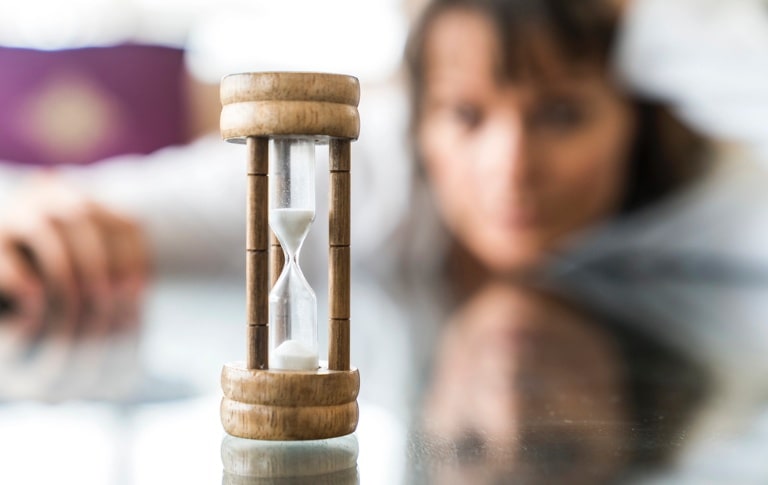The Lost Art of Waiting: Why Patience Is Good for the Soul

Society’s patience with just about everything has worn thin over the years. With entertainment available on demand, food and essentials delivered to our doorstep in twenty minutes, and the “hurry up” culture eroding the smallest pauses in our day, waiting has become a lost art. The moment we have to wait for a webpage to load, commercials to end, or our turn at the checkout, frustration starts creeping in. We’re so used to multitasking and instant gratification that we’ve completely lost our appreciation for being still.
Waiting is inevitable, even in modern society, so why not recognize such moments as time to pause, breathe, and process what’s going on in our mind, soul, and body?
How We’ve Replaced Waiting with Instant Gratification
While it’s true that we wait less than we used to, we respond to the times we do wait with solutions. Rather than simply basking in the moment and using it as an opportunity for some quiet time, we scroll through social media, text a friend, browse food delivery deals, and mindlessly tap in and out of apps just to keep busy. We anxiously attempt to fill every idle second with some form of entertainment.
That’s not to say these conveniences don’t have value, making otherwise tedious tasks much more efficient. But they can quietly destroy a deeper rhythm that once enriched us. Waiting can actually be precious and constructive, creating space for us to build anticipation, reflect on our thoughts and feelings, and be present. These moments naturally break up our day and take us out of the bubble of constant activity.
Having to wait for a reply to a handwritten letter from a friend or for a family member to show up at a restaurant at a set time without constant follow-up are examples of scenarios that encouraged patience. We’ve replaced them with constant connection, which has completely changed our perception of time.
Digital Habits That Change How We Wait
Access to the digital world has significantly affected the way we wait. A few spare minutes—seconds, even—trigger the reflex to take out our phones and laugh at a funny Instagram Reel, play online games, or visit virtual casinos. Activities we once had to travel for or put effort into have become little more than distraction tools to fill the pause. Life used to ebb and flow and be more textured and unpredictable. But now, it feels like constant stimulation, and we can’t catch a break.
These habits affect how we experience anticipation and our tolerance for delay. We’ve been well-conditioned to expect immediacy in every aspect of our lives, the expectation of which can remove the playfulness, curiosity, and ease of satisfaction humans need. Those subtle joys become harder to appreciate, which leaves our attention fragmented, engagement shallow, and connection to the moment weakened.
How Waiting Shaped Southern Life
In the South, especially, waiting was an integral part of the day-to-day rhythm. Without the pressures and busyness of big city life, the most ordinary moments were slower and more deliberate. Observing, connecting, and reflecting were all a big part of Southern life, with porches and front yards acting as venues for sparking up conversation and talking until the sun set.
Instead of being a burden or an interruption, the long lines at community events or county fairs were welcome pauses to meet new people or just watch the world go by around you. Waiting was used as a vehicle for socializing, fostering attentiveness, and almost as a form of surface meditation. Even daily tasks were seen in a different light. Preparing dinner, grabbing something from the store, or even doing some spring cleaning were points of satisfaction, offering a chance to slow down and appreciate the mundane.
While Southern communities still retain some of these qualities, many have been affected by modern conveniences.
The Relationship Between Patience and the Soul
Whether you consider yourself religious or not, patience nourishes the soul in more ways than one. Ever heard the phrase “patience is a virtue?” Patience shows up in religious scriptures as a significant characteristic for gaining a more profound connection with the divine. In spirituality, it’s key to a deeper sense of inner peace and self-awareness.
Outside of the religious and spiritual realm, it helps us slow down, become more thoughtful, and find meaning in the simplest moments. By enhancing our relationships, increasing our resilience, and improving our overall well-being, we open the door to enjoying life even more.
Let’s Rediscover Waiting
With all its benefits, waiting is worth redefining. If you find that you’re missing calm and lightness, you can find significance in the little things again with these useful tips:
- Resist your reflex: It can be easy to reach for your phone when it’s time to wait, especially if everyone around you is doing so. Next time, people-watch or notice your surroundings and enjoy the feeling of simply being.
- Embrace the excitement: Rather than use a significant moment like an event or trip as a be-all-end-all finish line, enjoy the buildup and still treasure the time leading up to the experience.
- Create screen-free time: Set aside a few moments in your day to step away from digital distractions.
- Practice intentional pauses: Allow yourself to be present and still by cooking something intentionally, journaling, meditating, or even enjoying time with your pet.
None of these tips and tricks means giving up the convenience or gratification of technology, but rather incorporating those pauses that let us reconnect with ourselves, with others, and with what matters most.




